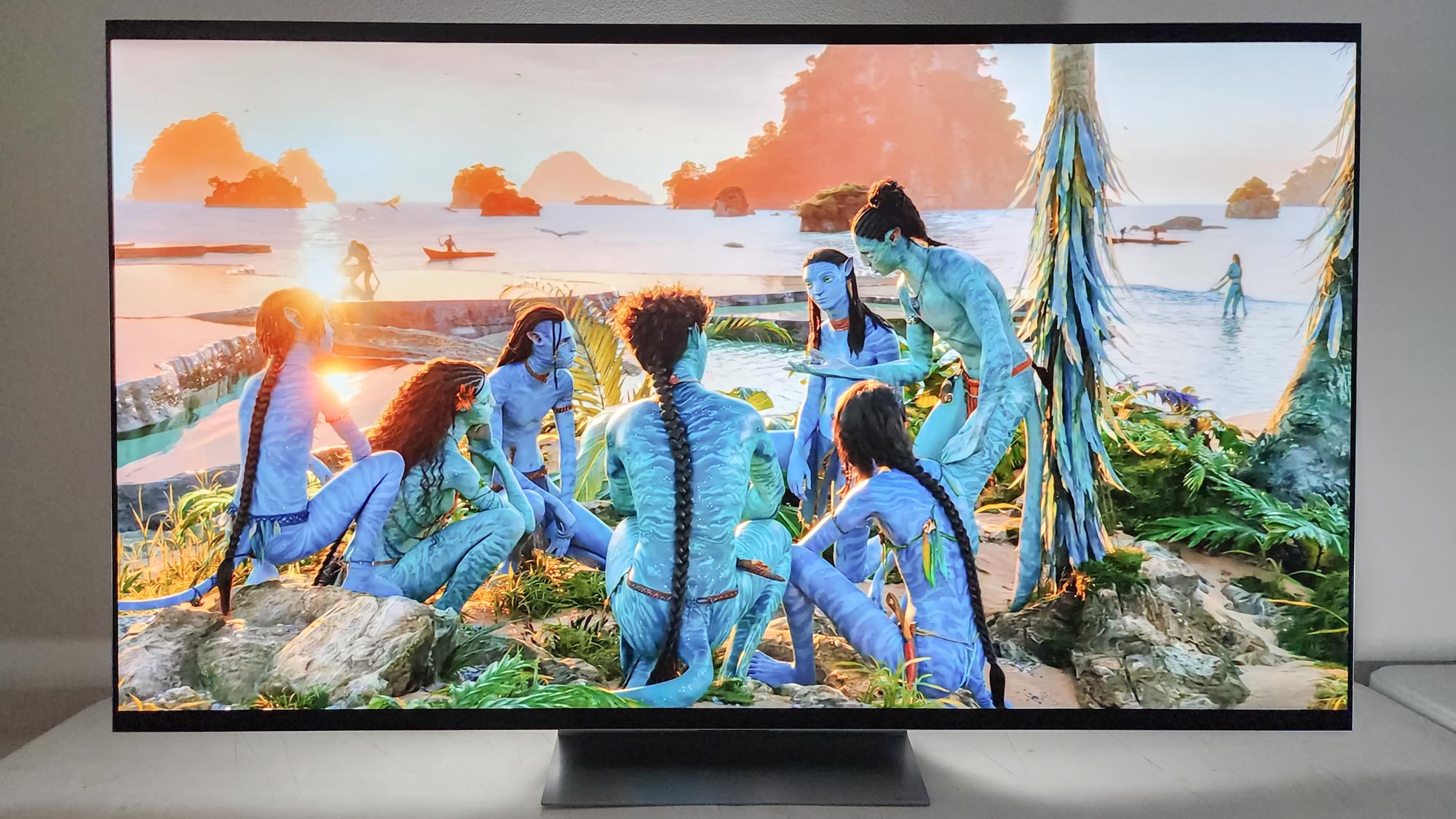
To say that the LG G3 OLED has become an object of great importance and debate around the Tom’s Guide office would be a real understatement. Not only has the team written a full review on it, but we’ve also done an LG G3 OLED vs C3 OLED face-off and watched the LG G3 and C3 OLED side-by-side to see which was better.
All of our testing shows that the G3 OLED is an absolutely brilliant TV, and one of the best TVs we’ve seen in 2023. LG promised us a “70% boost in brightness compared to older OLED TVs” and it delivers just that. Well, it delivers that most of the time.
To find out just how much brightness the LG G3 OLED can put out, we ran a number of tests using an X-Rite i1 Pro spectrophotometer, a SpectraCal VideoForge Pro pattern generator, and Portrait Displays’s Calman calibration software.
Here’s what we saw.
LG's 70% brightness claim is confirmed
What you see above is a comparison between the LG G3 OLED, the LG C3 OLED, the LG C2 OLED from last year and the ultra-budget LG A2 OLED that routinely sells for $650 at Best Buy.
The test results confirm LG's claim — the LG G3 OLED is at least 70% brighter than previous-generation OLED TVs, and often even brighter than that. In the case of the LG G3 OLED vs the sub-$1,000 LG A2 OLED, the G3 is 142.99% brighter in a 10% window size. That's a massive increase well above what LG promised.
But the caveat here is that, when you run a brightness test at a 100% window size, the numbers are under that 70% mark. When stacked up against the same budget LG A2 OLED, the G3 OLED is only about 66.29% brighter and a mere 18.72% brighter than the LG C2 OLED from last year.
And brightness is only one component of performance. Two other important specs to look at are color depth and accuracy. In both, the LG G3 OLED really excels, but compared to other LG OLED models like the LG C3 and LG C2 OLED TVs it actually has slightly less color volume. Even the budget A2 OLED can beat it in some color spaces. That's not a great look for the LG G3 OLED.
That said, these are marginal differences of a single percent or two. It's not really noticeable to the naked eye the same way that a 700 nit difference in brightness is, and the numbers alone don't make the A2 OLED the better TV than the G3 OLED.
META panels are good, but need refinement
When I look at the table of test results, I see a lot of promise. LG Display's new META panel that's used in the LG G3 OLED has shown that it can increase brightness by a substantial amount, at least in a small window, and continues to excel in color reproduction. However, those numbers will need to continue to improve.
If they don't, I'm worried that QD-OLED — a rival panel technology that's being produced by Samsung Display for use in Samsung and Sony TVs — will soon overtake OLED in all the important areas. In fact, it's already starting to happen — just look at the data we collected when we tested the Samsung S95C OLED.
While the LG G3 OLED is putting up better brightness numbers with SDR content, the Samsung S95C was able to surpass the LG G3 OLED in HDR in a 10% window. It's only a small amount brighter, but it shows that the competition is real.
As more TV makers use Samsung's QD-OLED panels in their TVs we're going to see LG Display under a lot of pressure to keep up the improvements, both in terms of brightness as well as color vibrancy.
The silver lining, at least for potential TV buyers, is that as the competition heats up and performance continues to increase, LG and Samsung will also have to figure in price to the equation. The Samsung S95C OLED is, so far, the cheaper option when compared to the LG G3 OLED, but the LG C3 OLED offers some steep competition for around the same price.
In short, LG's panels to continue to improve and LG and Samsung's continued rivalry means that these awesome new TVs are coming down in price. But LG still has its work cut out for itself if it wants to keep the crown as the best OLED TV maker.







